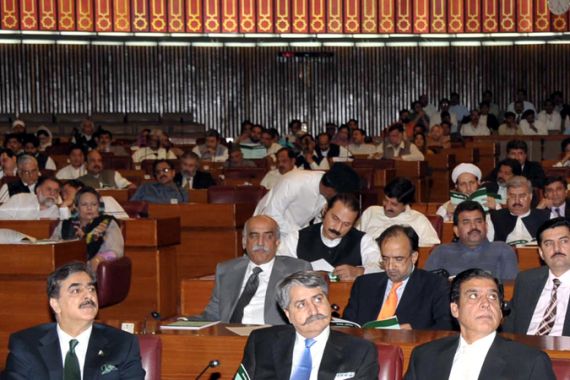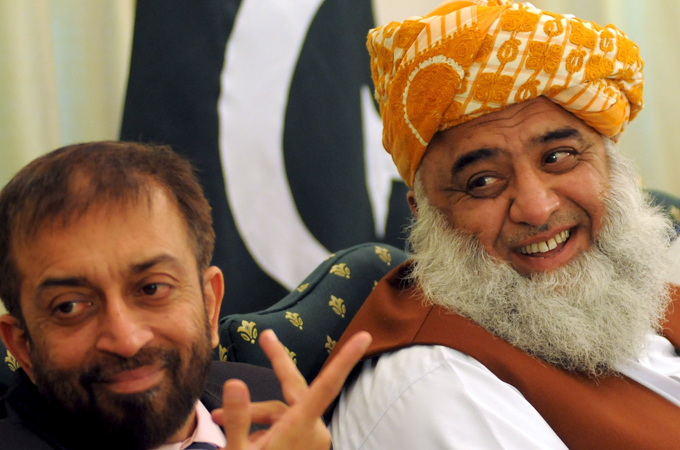Pakistan ministers to quit cabinet
Karachi-centred political party serves notice on government following tensions with coalition partners.

 |
| MQM’s decision to quit the cabinet comes just weeks after a prominent religious party quit the government [EPA] |
The second largest party in Pakistan’s coalition government has announced that its two ministers are quitting the federal cabinet.
The Muttahida Qaumi Movement (MQM) said its ministers would resign on Tuesday due to differences with the ruling Pakistan People’s Party (PPP).
MQM announced the decision a day earlier, citing corruption, law and order and rising prices among the reasons for its decision to withdraw Babar Ghauri, the ports and shipping minister, and Farooq Sattar, minister for overseas Pakistanis.
The party has, in the past, repeatedly threatened to pull out of the federal government. “They wanted to build pressure on the government,” Zafar Jaspal of Islamabad’s Quaid-e-Azam University told Al Jazeera. “It is a typical blackmailing move but a very calculated political one.”
Future in doubt
The MQM’s move comes just weeks after a prominent religious party left the government, raising questions about the government’s future.
The party said on Monday that the resignations were a first step and that a decision to stay or leave the coalition at federal and provincial levels would be taken in the near future.
“We have two ministers in the federal cabinet and as protest have withdrawn them, but we will not sit on opposition benches,” Haider Abbas Rizvi, a senior MQM leader, said.
Al Jazeera’s Kamal Hyder, reporting from the northwestern city of Peshawar said: “The MQM is saying that while it will quit the cabinet, it will not quit the government, perhaps to give a chance to the government to reform itself.
“It will be interesting to see how the PPP responds and whether they want to keep MQM on board or not.”
Faisal Sabzwari, an MQM party leader, said: “The decision has been taken because the government did not pay any heed to our complaints about the remarks of Zulfiqar Mirza, Sindh home minister, maligning the MQM.”
Mirza prompted anger from the MQM by saying on television that most of the suspects detained in recent months over targeted killings had belonged to the MQM.
The party complained to Yousuf Raza Gilani, the prime minister, and Asif Ali Zardari, the president, about it, but was unhappy with their response.
Tensions are already high between the MQM and the Awami National Party (ANP), which represent different communities in Karachi, straddling political fault lines.
The MQM represents the Urdu-speaking majority in Karachi and shares power in Sindh province and central government.
Karachi, capital of Sindh, is plagued by ethnic and sectarian killings, crime and kidnappings.
Multiple challenges
Pakistan’s ruling coalition faces several challenges including combating Taliban fighters and a fragile economy.
It holds 181 out of 342 seats in parliament, nine more than the 172 needed to maintain its majority, including 25 members from the MQM.
“Pakistan’s government is in trouble, the parliament is not able to do anything,” our correspondent said.
“The political parties don’t feel comfortable with this government, which has not performed well.
“And there are strong indications that the government is in a deep crisis, not just economic but also political.”
Furthermore, Gilani’s government is struggling to implement tax overhaul needed to secure the sixth tranche of an $11 bn International Monetary Fund loan keeping the economy afloat.
The government is likely to be further distracted by the political turbulence, though the IMF’s decision on Monday to grant a nine-month extension of the stand-by loan could give it some breathing space.
The extension, aimed at giving Pakistani authorities time to complete sales tax and other overhaul, runs to September 30, 2011.